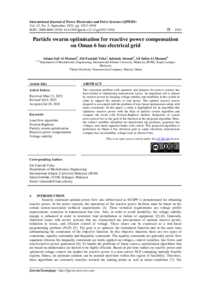Document
The costs and gains of policy options for coordinating electricity generation in the Gulf Cooperation council.
Identifier
DOI: 10.1016/j.enpol.2018.11.046
Source
Energy Policy. v. 127, p. 452-463
Contributors
Murphy, Frederic., Author
Pierru, Axel., Author
Country
Netherlands.
Publisher
Elsevier Ltd.
Gregorian
2019-04-01
Language
English
Subject
English abstract
We investigate the economic impacts of policies for coordinating electricity production in the Gulf Cooperation Council (GCC) through electricity trade. The GCC countries have installed a network of high-voltage transmission lines that links Saudi Arabia, Bahrain, Kuwait, Oman, Qatar, and the United Arab Emirates. The Interconnector has successfully provided reliability services but has not yet realized its full potential as a platform to fully integrate the individual electricity systems. We perform a static analysis of 2015 using a partial equilibrium model with detailed power generation and water production sectors for each country. We calculate economic losses and gains for each country and in aggregate before and after coordination through electricity trade. We first assess the potential gains from coordination subject to the existing national policies for fuel subsidies. We then consider coordination when fuel inputs are not subsidized. Finally, we devise a scenario that aims to retain the benefits of coordination without removing fuel subsidies. Our results indicate that subsidy removal is necessary for each country to gain from electricity trade. Removing fuel subsidies provides the bulk of economic gains: $42.6 billion. Utilizing the Interconnector further increases annual gains by $1.1 billion.
ISSN
0301-4215
Category
Journal articles

